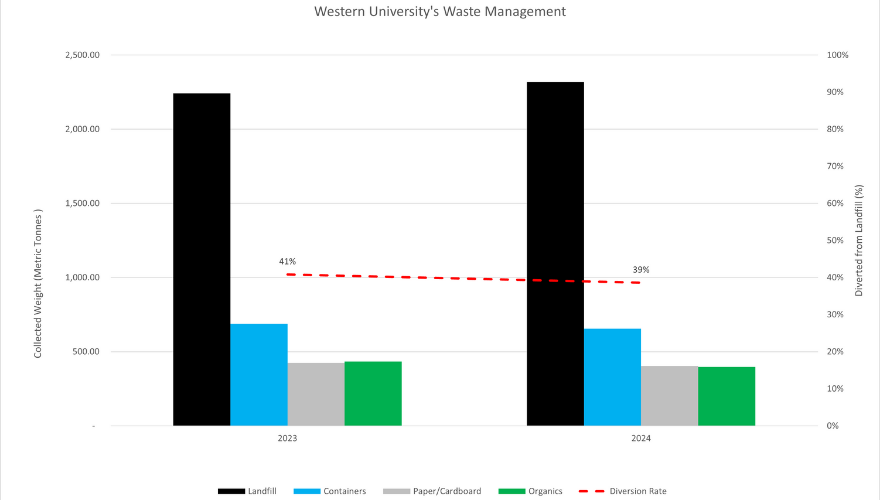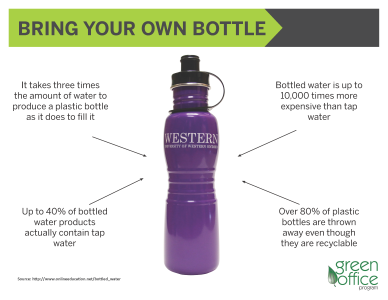SDG 12 - Strategic Initiatives
Ethical Sourcing Policy
Western has a policy framework that supports ethical sourcing of food, supplies, and services. The university recognizes that every dollar spent has social, environmental, and ethical impacts, both positive and negative. Western is committed to creating positive change through purposeful and proactive spending and supplier relations.
- Environmental Sustainability Policy: Western Retail Services has adopted a specific policy of accountability on behalf of Western’s community.
- From Purple to Green: This guide complements Western’s Procurement Policy and serves as a tool to help our community continue making responsible and ethical purchasing decisions.
- Investing to Address Climate Change: A Charter for Canadian Universities: As a signatory, Western agrees to set an institutional framework for strategies that measure, evaluate, and shift investments to reflect environmental impact.
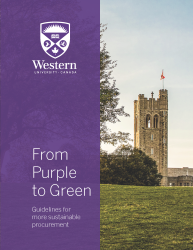
- Policy 2.8 Procurement of Materials and Services: Western requires all procurement decisions to consider environmental, social, governance, and ethical impacts, while complying with trade agreements and legislation. This ensures responsible purchasing across all goods and services.
- Procurement Services Sustainable Procurement Policy: Western’s policy guides purchasing decisions using environmental, social, and economic criteria across a product’s life cycle. It promotes responsible acquisition of goods and services that conserve resources and support ethical production, setting minimum standards of acquisition.
- Supplier Code of Conduct: All suppliers and their subcontractors must comply with Western’s ethical standards, which prohibit forced and child labour, promote fair treatment and safe working conditions, and require environmental responsibility. Western reserves the right to audit suppliers and terminate contracts if standards are not met.
- Sustainable Procurement: Ensures that the products and services we buy are as sustainable as possible, with the lowest environmental impact and most positive social results, while achieving best overall value. The university’s strategy guides staff in making responsible purchasing decisions that support climate action, ethical sourcing, and community well-being.
- Sustainable Procurement Strategy: Prioritizes carbon reduction, waste reduction, local economic development, certified diverse suppliers, community investment, relations with Indigenous communities, responsible supply chain management, reduced risk of child labour, human trafficking, and labour exploitation.
Hospitality Services also champions sustainability initiatives related to food, including:
- Providing only compostable and/or recyclable single-use containers.
- Offering reusable take-out containers and travel mugs to students in residence.
- Composting all organic waste in Residences, Great Hall Catering, and Green Leaf Café.
- Buying local and in bulk whenever possible.
- Donating excess food to the London Food Coalition by way of the Ark Aid Street Mission.
- Supporting the Western FairTrade Campus initiative in all our eateries.
- Maintaining honey bee hives for use in Great Hall Catering.
- Hosting a farmers’ market on campus from June to late October.
See Hospitality Services’ Sustainability Commitment Report for more details.
Landfill and Waste Management
Western University has comprehensive policies and practices in place for waste disposal, including hazardous materials and landfill/recycling tracking.
The university adheres to all relevant federal, provincial, and municipal regulations regarding landfill waste disposal, including:
- The Canadian Environmental Protection Act: Provides for the protection and conservation of the natural environment.
- The Waste-Free Ontario Act: Promotes re-use and recycling, as well as reducing reliance on landfills, aiming for zero greenhouse gas emissions from the waste sector.
- The Environmental Assessment Act: Sets requirements for the design, operation, and closure of landfills to ensure environmental soundness.
- London's Municipal Waste & Resource Materials Collection By-Law WM-12: Enforces local landfill regulations.
- Policy 1.31 – Hazardous Chemical Waste: Ensures the safe and proper handling and disposal of harmful chemicals.
- Policy 1.48 – Environment and Sustainability: Encourages recycling, reuse, and life cycle management of resources.
- The Hazardous Materials and Waste Management Handbook: Addresses the most common types of hazardous waste generated on campus with detailed instructions on proper waste disposal.
- Free Store: A space for campus community members to support a culture of circularity and help reduce carbon emissions associated with the creation and transportation of new goods by donating and reusing items.
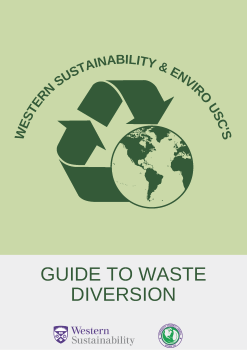
- Guide to Waste Diversion: Explains which items are organics and recycle, and where to find residence recycling rooms.
- Hazardous Materials Waste Pick-up: Is scheduled and picked up weekly by technical and environmental specialists from RPR Environmental.
- Locally Managed: All waste and recycling generated on Western’s campus are managed locally, within a 5KM radius of the City of London.
- Multiple Waste Streams: Include recycling, organics, e-waste, wood waste, batteries, electronic waste, ink and toner cartridges, and pharmaceuticals. One of our student initiatives even allows for snack wrapper recycling.
- Organics Waste Stream: Diverts biodegradable materials from landfills campus-wide. This stream accepts food scraps, compostable packaging, and other organic waste, which is collected and processed locally.
- Waste Diversion Rates: Are measured by Western and reported annually, including the the amount of waste sent to landfill and recycled. Diversion rates have been published since 2017.
- Waste & Recycling Portal: Is freely available to the entire Western community for all waste-related requests, supported by our Sustainability team.
- Waste Stations and Signage: Posted consistently across campus ensure the Western community is familiar with the waste management system, maximizing waste diversion and reinforcing individual ownership and responsibility for waste management.
Waste Tracking
Western measures the amount of waste generated and recycled across the university. Every year a campus-wide waste audit is conducted to determine waste composition, the success of current waste diversion programs, and to identify possible program improvements in reducing, re-using, and recycling waste. Western’s Office of Sustainability has tracked our historical waste diversion rates going back to 2017, publishing the most recent years. Western also reports on waste generation and recovery to the AASHE Sustainability Tracking, Assessment & Rating System, where we have an overall Gold rating.
 Minimization of Plastic and Disposable Items
Minimization of Plastic and Disposable Items
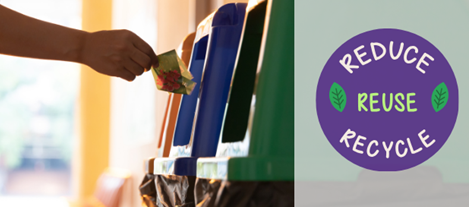
Western University has institutional policies and initiatives that aim to minimise the use of plastic and disposable (single-use) items. These efforts span procurement, hospitality services, facilities management, research, and community engagement. Below is a summary of key policies and programs that support this commitment:
General
- Policy 1.48 - Environment and Sustainability: Western subscribes to the principle of institutional ecology, reducing the use of resources and the production of waste.
- Free Store: Campus community members donate items they no longer want and take home things for free. Repurposing items supports a culture of circularity, helping to reduce carbon emissions associated with the creation and transportation of new goods.
Sustainable Procurement
- Guidelines: Developed by Procurement Services and Sustainability, focusing on carbon and waste reduction. See also: Sustainable Procurement Strategy 2023-2025.
Retail and Hospitality Services
- Environmental Sustainability Policy: Mandates purchasing items with minimal packaging, including plastic, and emphasizes reducing waste.
- Hospitality Services Sustainability Commitment Report: Prioritizes partnerships with local food providers and sourcing compostable and recyclable packaging.
- Compostable Packaging: Is used in all of our eateries.
- Choose to Reuse Program: Offers reusable food containers cleaned by dining staff.
- Composting: Of food waste reduces landfill waste and is used to generate energy.
- Plastic Water Bottles: Are no longer sold on campus; free drinking water fountains are available.
Facilities Management
- Waste Management: Supports waste reduction and diversion.
- Waste Streams: Reduce the amount of waste in landfills.
- Western Environmental System: Is an energy monitoring and control tool which supports demand management.
Research and Innovation
- Chemical Recycling: Engineering department collaborates with Aduro Clean Technologies to chemically recycle waste plastics.
- Good to the Last Bite?: Research provides data-driven insights to reduce household food waste.
- Hemp Plastics: Chemistry department developing hemp as an alternative to plastics.
- Low Impact Materials: Fraunhofer Innovation Platform for Composites Research develops thermoplastics with low life-cycle impact.
- Microplastics Research: Surface Science Western partners with industry to minimize environmental harm.
- Sustainable Alternatives: Undergraduate Summer Research Internship focuses on creating sustainable alternatives to traditional plastics.
Centre for Sustainable Curating
- Guide to Sustainable Curating: Encourages the use of alternatives to plastic in curation.
- Synthetic Collective: An interdisciplinary collaboration between visual artists, cultural workers and scientists, samples, maps, understands, and visualizes the complexities of plastics and micro-plastics pollution in the Great Lakes Region.
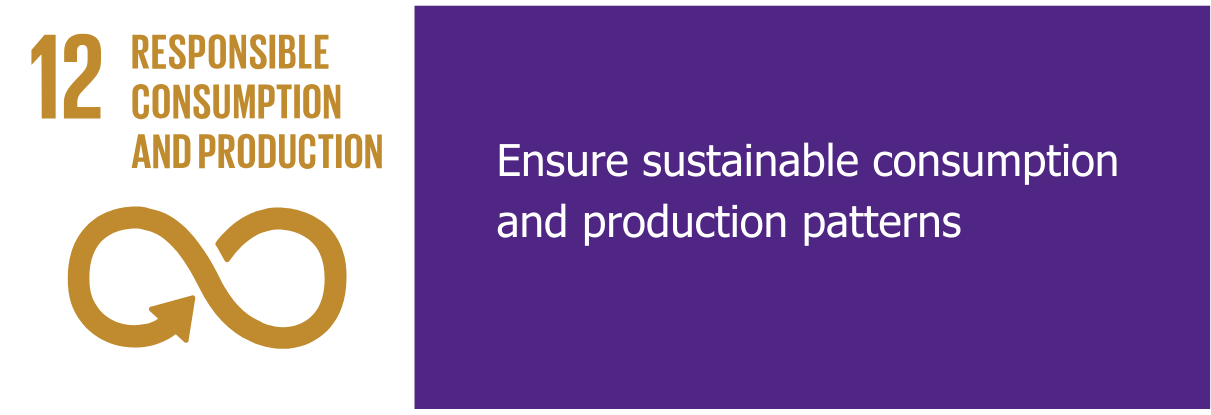
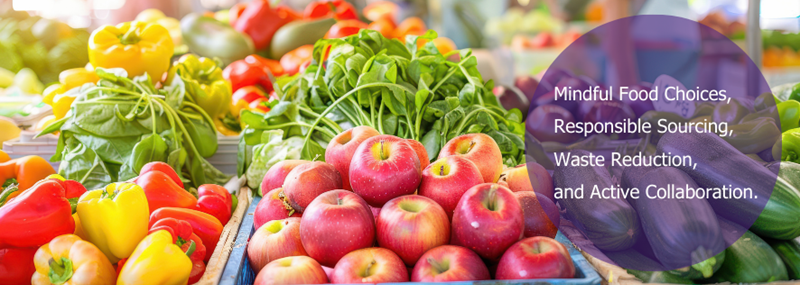 Top of Page
Top of Page